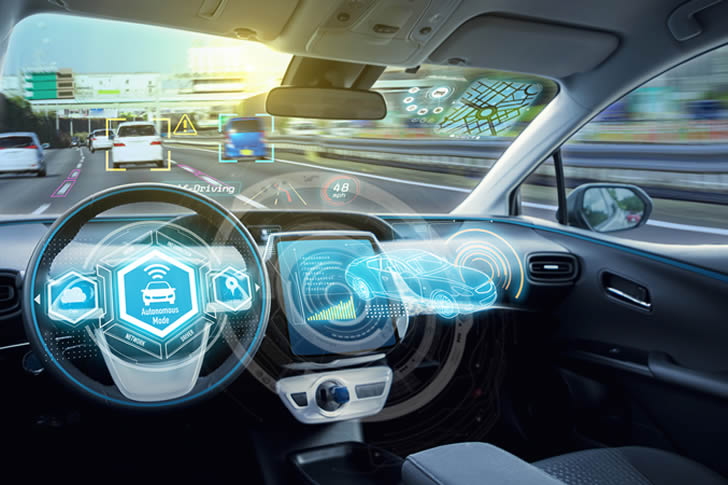Which One Excites You the Most These Tech Innovations
In the rapidly evolving world of technology, groundbreaking innovations continue to shape our lives and redefine the boundaries of what is possible. From advancements in artificial intelligence and biotechnology to pioneering renewable energy solutions and next-generation transportation systems, these innovations are setting new standards and driving significant progress across various industries. Here, we highlight five of the most cutting-edge technological innovations of the year, each with the potential to transform the future and address some of the most pressing challenges faced by humanity today.
1CRISPR-Cas9: Revolutionizing Genetics
0 votes

CRISPR-Cas9 technology has revolutionized the field of genetics by providing a precise and efficient method for editing DNA. This gene-editing tool allows scientists to make targeted changes to an organism’s genetic code, which can lead to breakthroughs in treating genetic disorders, developing new crops, and even eradicating diseases. The process involves using a specialized protein (Cas9) and a strand of RNA to locate and cut specific sequences of DNA. This technology has already shown promise in correcting genetic mutations responsible for conditions like cystic fibrosis and sickle cell anemia. Additionally, CRISPR is being used to engineer crops with enhanced nutritional profiles and resistance to pests and diseases. The ethical considerations and potential risks of gene editing are still being debated, but the benefits and possibilities offered by CRISPR-Cas9 are undeniably transformative. As research and applications continue to advance, CRISPR is poised to have a profound impact on medicine, agriculture, and biotechnology.
0
Do you agree? 0% of people agree with your point of view!
2Autonomous Vehicles: Redefining Transportation
0 votes


Autonomous vehicles, or self-driving cars, are poised to revolutionize the way we think about transportation. Leveraging advancements in artificial intelligence, machine learning, and sensor technology, these vehicles can navigate and operate without human intervention. Companies like Tesla, Waymo, and Uber are leading the charge in developing and testing autonomous driving systems. These vehicles use a combination of cameras, radar, LIDAR, and sophisticated algorithms to perceive their environment, make decisions, and execute driving tasks safely and efficiently. The potential benefits of autonomous vehicles are numerous, including reducing traffic accidents caused by human error, increasing mobility for those unable to drive, and optimizing traffic flow to reduce congestion and emissions. As the technology continues to evolve and regulatory frameworks are established, autonomous vehicles are expected to become a common sight on our roads, fundamentally changing the landscape of transportation and urban planning.
0
Do you agree? 0% of people agree with your point of view!
3Renewable Energy: Harnessing the Power of Nature
0 votes

Renewable energy technologies are crucial in the global effort to combat climate change and reduce dependence on fossil fuels. Innovations in solar, wind, hydroelectric, and geothermal energy are making these sources more efficient, affordable, and accessible. Solar power, in particular, has seen significant advancements with the development of more efficient photovoltaic cells and energy storage solutions. Wind energy is benefiting from larger, more efficient turbines and offshore wind farms. Hydroelectric power continues to be a reliable and clean source of energy, while geothermal energy taps into the Earth’s natural heat to generate power. These renewable energy technologies not only help reduce greenhouse gas emissions but also promote energy independence and create jobs. As investment and research in renewable energy continue to grow, these technologies are expected to play a pivotal role in achieving a sustainable and resilient energy future.
0
Do you agree? 0% of people agree with your point of view!
4Quantum Computing: The Next Frontier
0 votes

Quantum computing represents one of the most significant leaps in computational power and efficiency. Unlike classical computers that use bits as the smallest unit of information, quantum computers use quantum bits or qubits, which can exist in multiple states simultaneously. This allows quantum computers to solve complex problems at unprecedented speeds, making them particularly valuable in fields such as cryptography, material science, and complex system simulations. Companies like IBM, Google, and Intel are at the forefront of this innovation, developing quantum processors that are steadily increasing in qubit count and stability. While still in the early stages of development, the potential applications of quantum computing are vast, including accelerating drug discovery, optimizing supply chains, and even advancing artificial intelligence. As this technology matures, it promises to revolutionize industries and solve problems that are currently beyond the capabilities of classical computers.
0
Do you agree? 0% of people agree with your point of view!
5Artificial Intelligence: Shaping the Future
0 votes

Artificial intelligence (AI) is one of the most transformative technologies of our time, with applications across virtually every industry. AI systems, powered by machine learning and deep learning algorithms, can analyze vast amounts of data, recognize patterns, and make decisions with unprecedented accuracy and speed. In healthcare, AI is being used to improve diagnostics, personalize treatment plans, and accelerate drug discovery. In finance, it helps detect fraud, manage investments, and automate trading. AI-driven automation is enhancing productivity and efficiency in manufacturing, logistics, and customer service. Additionally, AI-powered personal assistants like Siri, Alexa, and Google Assistant are becoming integral parts of our daily lives. The ethical and societal implications of AI are significant, raising important questions about privacy, bias, and job displacement. However, the potential benefits of AI in solving complex problems, improving quality of life, and driving economic growth are immense. As AI technology continues to advance, it will undoubtedly shape the future in profound ways.
0
Do you agree? 0% of people agree with your point of view!







Recent Comments